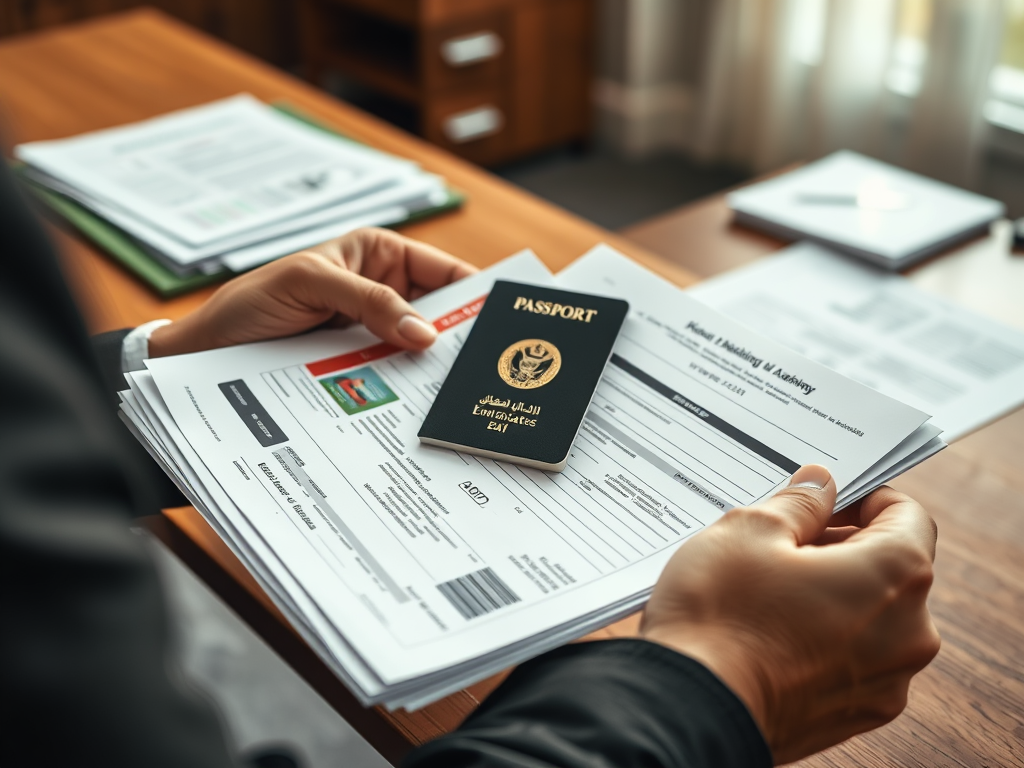Documents Required for VAT Registration in the UAE: A Business Guide
Understanding the process of Value Added Tax (VAT) registration is essential for businesses operating within the United Arab Emirates. VAT is more than just a tax; it’s a framework that influences pricing strategies, cash flow management, and compliance obligations. As a business owner or decision-maker, being equipped with knowledge about the necessary documentation for VAT registration can streamline your entry into this mandatory system. This guide aims to walk you through the specific documents required for VAT registration in the UAE and the procedural steps involved. By being prepared, you can avoid delays and potential pitfalls during the registration process, ensuring that your business complies with governmental regulations from the get-go.
Several essential documents must be submitted when registering for VAT. These documents not only verify the legitimacy of your business but also facilitate a smooth interaction with the Federal Tax Authority (FTA). Moreover, the requirement to maintain accurate and updated financial records cannot be overstated, as these come into play not only at the time of registration but also during potential audits. As businesses often operate in complex environments, having all necessary documentation organized can mitigate any risks associated with non-compliance.
Who Needs to Register for VAT?

Not every business in the UAE is required to register for VAT. However, businesses that meet certain criteria must adhere to the registration mandates set forth by the FTA. Generally, businesses with annual taxable supplies exceeding AED 375,000 must register. Additionally, companies with taxable supplies or expenses below the AED 375,000 threshold can also opt for voluntary registration.
Here are key categories that require VAT registration:
- Businesses exceeding the annual taxable supply threshold of AED 375,000.
- Consultants and service providers with significant annual outputs.
- Companies involved in goods importation that surpass the registration limit.
Key Documents Required for VAT Registration

To successfully register for VAT in the UAE, certain documents must be prepared and submitted. The list below outlines the primary documents required:
- Identification Documents
- Business Documentation
- Financial Records
- Additional Supporting Documents
Here’s a detailed breakdown of these key documents:
| Document Type | Description |
|---|---|
| Identification Documents | Valid Emirates ID and Passport copies of owners and partners. |
| Business Documentation | Trade license and establishment contract where applicable. |
| Financial Records | Recent bank account statement and financial statements. |
| Additional Supporting Documents | Proof of business activities and any partnership agreements. |
The identification documents are vital to establish the identities of business owners. Typically, the Emirates ID acts as a primary form of identification for residents. Alongside this, a clear, readable copy of the passport is essential for every owner or partner in the business to facilitate verification. Moreover, the business documentation like a trade license not only legitimizes the business but also provides details about the nature of operations. Alongside these documents, recent financial records such as bank statements and financial health overviews are pivotal in ensuring your business is not in a deficit position during VAT registration.
The VAT Registration Process
The process of VAT registration involves several steps, each requiring the meticulous preparation of the aforementioned documents. To begin, businesses must log onto the FTA’s official portal and create an account if they do not already have one. It involves submitting the required documents electronically, which streamlines the process significantly.
Once submitted, businesses should be prepared to wait up to 20 working days for the FTA to process the application. Timeliness and accuracy in document preparation ensure an efficient turnaround. It’s advisable to keep track of your application status through the FTA portal. Upon successful registration, businesses will receive a VAT registration number, which must be displayed on all invoices and tax documents.
Conclusion
After navigating through the documentation and registration process, businesses must remain compliant with their VAT obligations. Understanding the documents needed for VAT registration is vital for ensuring compliance and smooth operations. Prepare your documentation meticulously, follow the outlined steps, and stay updated with any changes in regulations, as the tax landscape is subject to evolve. By being informed and proactive, businesses can thrive in the dynamic economic environment of the UAE.
Frequently Asked Questions
- What is the VAT registration threshold in the UAE?
The VAT registration threshold in the UAE is AED 375,000 in annual taxable supplies. - How long does the VAT registration process take?
The VAT registration process can take up to 20 business days once all documents are submitted. - What happens if I do not register for VAT?
Failing to register for VAT can result in penalties and fines imposed by the Federal Tax Authority (FTA). - Can I claim back VAT on my expenses?
Yes, businesses can claim back VAT on eligible business-related expenses after registration. - Is there an online process for VAT registration in the UAE?
Yes, businesses can register online through the FTA’s official website.
